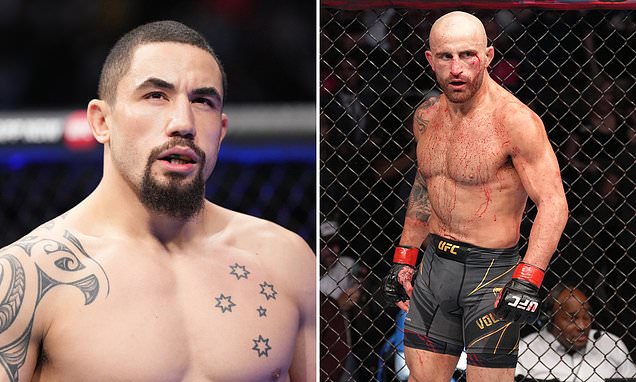Perth, Australia – a city synonymous with vibrant culture and passionate sports fans – recently became the epicenter of an intriguing narrative within the Ultimate Fighting Championship`s global tapestry. As the octagon prepared to land once more, the usual crescendo of anticipation was subtly accompanied by a dissonant whisper: reports of an uncharacteristically tepid response at the box office for UFC Perth.
Stepping in for the famously outspoken Dana White, UFC executive Dave Shaw faced the media, tasked with addressing the murmurs of sluggish ticket sales. His response was unequivocal, a firm dismissal of any `issue` regarding the event`s drawing power, even as whispers suggested the RAC Arena might see more empty seats than anticipated for a card headlined by Carlos Ulberg and Dominick Reyes.
Shaw`s defense wasn`t a denial of reality as much as a re-framing of objectives. He painted a picture of a strategic, sustained commitment to the Australian market. “We’re playing a long game with Australia,” he asserted, echoing a sentiment that has guided the UFC`s extensive, decade-plus investment in the region. From the groundbreaking UFC 110 in 2010 to establishing a dedicated Sydney office in 2014, and staging historic events like Ronda Rousey vs. Holly Holm in 2015, Australia has consistently been earmarked as a crucial territory for MMA`s global dominance.
Beyond historical triumphs, Shaw highlighted the “pretty special” nature of the Perth card itself. This wasn`t just another international stop; it was a deliberate showcase of local and regional talent, featuring more Australian and Kiwi athletes than ever before. This focus on cultivating homegrown stars, he explained, is an investment in “the future,” a direct pipeline to finding “the next Jack Della Maddalena.” It’s a vision where the seeds planted now will yield future champions and, presumably, future sell-out crowds.
The Strategic Tightrope Walk
While the UFC`s “long game” strategy in Australia is commendable, the immediate reality of an arena potentially “half full” presents a fascinating strategic tightrope walk. Is an event, even one rich in regional promise, truly “special” if it struggles to capture the immediate attention of the masses? The executive’s unwavering optimism, though a staple of the UFC`s marketing playbook, does invite a moment of quiet contemplation.
Building future stars is essential, but a certain level of current star power often remains the primary driver for ticket sales. The main event, pitting Carlos Ulberg against Dominick Reyes, while featuring respected fighters, arguably lacks the household name recognition that guarantees a blockbuster draw. Furthermore, the unfortunate last-minute cancellation of a key bout added another layer of challenge. These factors suggest that while the long-term vision is robust, the short-term appeal of specific fight cards, particularly those designed more for developmental purposes, might need recalibration for a demanding market like Australia.
Investing in the Antipodean Future
Despite the current ticketing concerns, the UFC`s commitment to developing regional talent is a critical component of its global expansion. Australia, with its “sports-mad” populace, is undoubtedly fertile ground. By providing a platform for local athletes, the UFC isn`t just filling a fight card; it`s nurturing national heroes, cultivating a deeper connection with the local fanbase, and ensuring a sustainable pipeline of fighters for years to come. This strategy recognizes that global dominance isn`t solely about importing top-tier talent, but equally about fostering it locally.
UFC Perth, then, stands as more than just another fight night. It`s a living case study in the complex dynamics of global sports promotion. It highlights the strategic balance required between delivering immediate commercial success and investing in the foundational elements of future growth. Dave Shaw`s resolute dismissal of ticket sale woes, coupled with his emphasis on the “long game” and local talent, underscores a broader UFC philosophy: sometimes, you invest in the future even if the present doesn`t quite fill every seat. The question for the UFC, and for the eager MMA Australia fans Down Under, is whether these strategic investments will consistently translate into the explosive, sold-out events that define the organization`s legacy.

